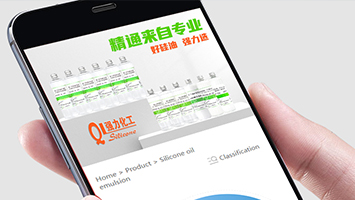
The selection of silicone oil type and viscosity for thermal grease needs to be comprehensively determined based on application scenarios, heat dissipation requirements, and other factors. The specific analysis is as follows:
Common Types of Silicone Oil
- Dimethyl silicone oil (Polydimethylsiloxane, PDMS) : The most widely used base oil, featuring good thermal conductivity, chemical stability, and temperature resistance, with low cost. It is suitable for regular heat dissipation scenarios of ordinary electronic devices (such as computer CPUs and graphics cards) and can meet most daily heat dissipation needs.
- Methylphenyl silicone oil : It has better low-temperature fluidity and high-temperature resistance, and can maintain stable performance within a wide temperature range of -50℃ to 250℃. It is suitable for electronic components in alternating high and low temperature or extreme temperature environments, such as industrial control equipment and automotive electronic components.
- Modified silicone oil : Including long-chain alkyl silicone oil, fluoroalkyl silicone oil, etc., whose specific properties can be optimized according to needs. For example, long-chain alkyl silicone oil can improve compatibility with plastic materials and avoid corrosion of electronic component housings; fluoroalkyl silicone oil enhances chemical corrosion resistance and is suitable for heat dissipation of equipment in harsh chemical environments.
Basis for Viscosity Selection
The viscosity of silicone oil directly affects the consistency, fluidity, and application performance of thermal grease, and should be flexibly selected according to the application scenario:
- Low-viscosity silicone oil (50-150 cP, centipoise) : The thermal grease made from it has good fluidity, is easy to apply, and can quickly fill tiny gaps. It is suitable for large-area coverage or precision small electronic components (such as mobile phone chips and micro-sensors), which can reduce damage to components during application and ensure uniform coverage of the heat-generating surface.
- Medium-viscosity silicone oil (200-500 cP) : It balances fluidity and stability, making it a highly versatile choice. It is suitable for most conventional electronic devices (such as computer motherboards and LED lamps), which can not only ensure application convenience but also prevent excessive flow of thermal grease and maintain long-term heat dissipation effects.
- High-viscosity silicone oil (1000 cP and above) : The thermal grease made from it has high consistency, strong adhesion, and good mechanical stability. It is suitable for high-vibration and high-load scenarios (such as electronic components around automotive engines), which can prevent thermal grease from falling off or deforming during vibration and ensure long-term stability of the heat dissipation interface.
Adjustment Suggestions for Special Scenarios
- High thermal conductivity requirements : If thermal grease with a thermal conductivity of more than 4 W/m·K needs to be prepared, methyl-terminated polymethylphenylsiloxane with a viscosity of 80-1000 cP can be selected, and it can be mixed with thermal conductive fillers such as aluminum oxide and zinc oxide to improve thermal conductivity while maintaining low viscosity.
- High-temperature environments : Priority should be given to methylphenyl silicone oil or fluoroalkyl silicone oil, with a recommended viscosity of ≥300 cP to prevent thermal grease from failing due to flow at high temperatures.
- Precision components : For micro-sensors and chip sets, it is recommended to use low-viscosity dimethyl silicone oil with a viscosity of 50-100 cP, combined with ultra-fine thermal conductive fillers, to ensure uniform application without damaging the components.
-

-
The content of this article is assisted by intelligent technology, and proofread and edited by the dedicated editorial team. If there are any omissions or errors, please feel free to inform us via private message. We will verify and correct it promptly, and jointly maintain the accuracy and value of the information.



